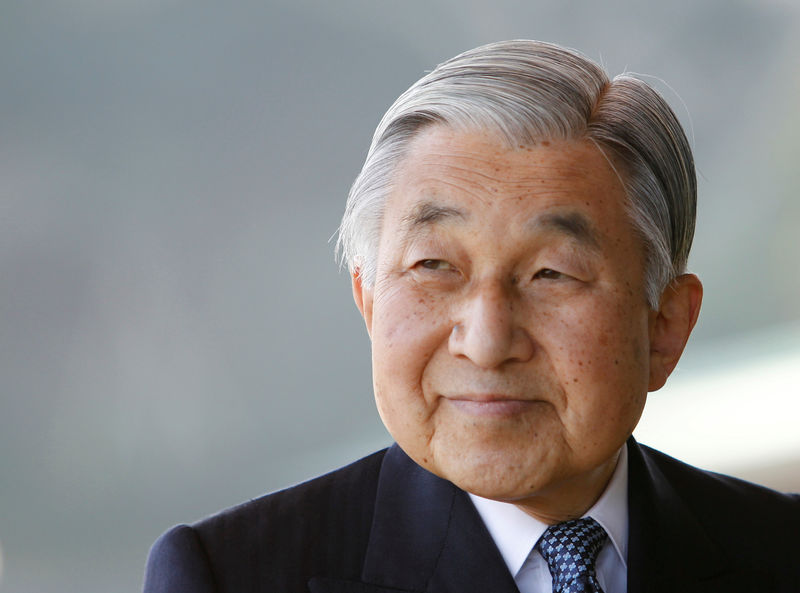By Elaine Lies
TOKYO (Reuters) - Japanese Emperor Akihito's abdication moved a step closer on Friday when the lower house of parliament approved a bill paving the way for the first such abdication in nearly two centuries.
Akihito, 83, who has had heart surgery and treatment for prostate cancer, said in rare public remarks last year he feared age might make it hard for him to fulfil his duties.
Akihito, the first Japanese emperor who was never considered divine, has worked for decades to soothe the wounds at home and abroad of World War Two, fought in his father Hirohito's name. He will be succeeded by Crown Prince Naruhito, 57.
The law passed the more powerful lower house with just a handful of dissenting votes and now goes to the upper house, with the intention of getting it passed before the current session of parliament ends in several weeks.
"I hope that the lower house today, and the upper house in days to come, will take this up in such a fashion that we can expect it to pass speedily," Chief Cabinet Secretary Yoshihide Suga told a news conference prior to the vote.
While no definite plan for an abdication has been confirmed, media have said it will likely take place in late 2018, which would mark nearly 30 full years on the throne for the emperor.
The last time an emperor stepped down was in 1817. The bill is one-off legislation that would allow only Akihito to step down, with no provisions for future emperors.
In a move to deal with a shortage of male heirs and the shrinking number of imperial family members, the bill also included a resolution calling for debate on allowing women to stay in the Imperial family even after their marriage. Current law mandates that they leave.

Both allowing them to stay and the controversial issue of changing the system to allow female inheritance have been suggested as a way of dealing with the shrinking pool of royals, an issue highlighted last month with the announcement that the Emperor's oldest granddaughter will marry a commoner.